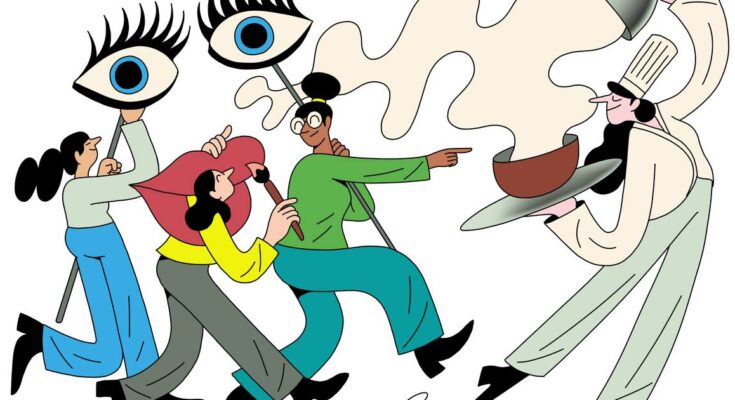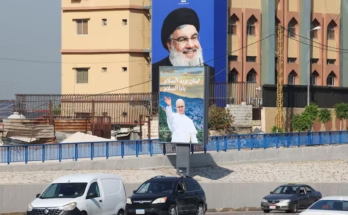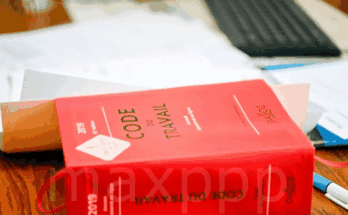Food, housing, energy, integration… A look back at the main themes discussed so far from the Global SSE Forum which was held at the end of October in Bordeaux.
Sarah (1) has two dreams: to work at a renowned beauty institute in the South West and to become a make-up artist. With CAP in hand, he enthusiastically plunged into the world of work. But reality quickly slowed him down. His bipolarity, sometimes impaired motor skills, and difficulty concentrating greatly complicated his job search. There are so many difficulties he has yet to quantify, due to a lack of support tailored to his disability. Little by little, the diploma that was intended as a stepping stone turns out to be useless and despair grows. However, in this challenging journey, one discovery ultimately changed everything: the Other Institute by Prince’ess – “ess” for social and solidarity economy –, a Bordeaux aesthetic salon recommended by a friend from the neighborhood. His meeting with the team would mark a turning point in his life.
That happened two and a half years ago. Determined, the young woman in her twenties spontaneously appeared on the doorstep of the institute, located in the Grand-Parc district, north of Bordeaux. The decor is subtle but warm. On the counter, there are leaflets detailing the services: facial and body treatments, hammam, make-up, hair removal… At first glance, there is nothing to differentiate this place from a classic salon. However, behind the glass of her office, Sophie Bonnet, the director, works differently, “more humane”, he summarized.
The integration company, approved by the State – unique in France in the field of solidarity aesthetics – offers socio-professional support to women who are far from work: long-term unemployed, RSAs, young people without qualifications, people with disabilities, etc. When these profiles do not come in person, the Other Institute identifies them mainly through France Travail. “We recruit women who don’t fit the criteria of a perfect employee, analysis Sophie Bonnet, who has led the Other Institute since 2021. However, the job requires versatility, a good command of French and precision of gestures.
Add to this the usual discrimination: age, young children in a sector where we work a lot on Wednesdays and weekends. Overall, the aesthetic leaves little room for social issues. “The priority is profitability. Someone who accumulates constraints becomes unemployable: they need time, and time is money. concluded Sophie Bonnet.
This project was born several years ago. The organization was born in 2017 in the mind of Annabelle Tallet, founder of the Gironde Princ’ess association, a collective of nine women committed to social innovation, the fight against exclusion and the ecological transition. “Annabelle started from a simple observation: integration lacks diversity, often offering the same jobs, cleaning or green spaces. Focusing on aesthetics means opening different, more interesting, more useful doors. browse Sophie Bonnet.
When recruiting, Other Institutes start by filtering out anything that hinders access to employment. “Princess offers a highly personalized support program. We prioritize priorities and in most cases, the first step is rebuilding self-confidence. Some women have been out of the workforce for years. So we start with the basics: simple tasks, lots of observation, a safe framework to get back on track.” explained the director. The Other Institute was also honored in October with the care management award, presented by the Préventica trade fair in Bordeaux, dedicated to innovation in the field of health, safety and quality of life at work.
Yaroslava is one of seven women who have benefited – like Sarah – from the Princessess’ expertise. Arriving from Ukraine in 2022 with her partner and two daughters to escape the war, the young beautician faced a new obstacle: non-recognition of her diploma in France. “Without this institute, I would never have gotten a job here,” he assured with a look behind him. She dreams of one day opening her own salon, even though she knows her fragile command of French is a hindrance. “Here, customers are forewarned and accommodating. Elsewhere, society may be less forgiving.” he said in English. While waiting to become self-employed, he signed an integration contract last January, with a remote CAP registration that he had to integrate in the coming months.
“I won’t lie to you, there are times when we tell ourselves we won’t make it, recognized Sophie Bonnet. One of the beneficiaries took two and a half years of work to improve his skills, or six months longer than average.” The team helped him, for example, to adopt more professional communication with clients, after he systematically avoided eye contact. “But it was worth it. Today, she has joined her dream institute and she is about to start cosmetology school. smiles the director, who every day tries to maintain a balance between social support and professional requirements.
This way of thinking, he stressed, is a real choice, despite financial constraints. “In the first months, someone doesn’t produce anything and it takes time and effort. We are far from the logic of profitability. We also need to educate customers. But on the other hand, we help someone to mobilize again. For me, this is a human investment, not a financial investment.” This is the spirit of social economy and solidarity.



